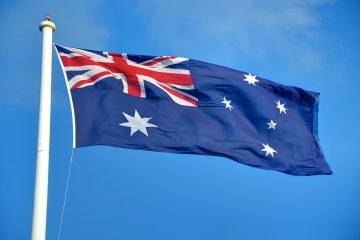“It has always been the greatest honour of my life to represent the people of my community, however, today perhaps more than ever, as we have seen their resilience and strength emerge on the world’s stage in recent weeks,” the Sipekne’katik Chief Mike Sack told a news release upon his reelection as chief of the First Nation and second largest Mi’kmaq band in Nova Scotia on Wednesday, November 4. In recent months, Mi’kmaq fishers in southwest Nova Scotia have been the targets of a series of attacks from non-Indigenous commercial fishers who have taken it upon themselves to enforce their interpretation of the legality of the Mi’kmaq fishing pounds operating during the off-season. The federal government’s failure to settle the conflict has revived debates nation-wide over the Canadian government’s commitment to uphold the rights of the Mi’kmaq First Nations.
A Timeline of the Events in Nova Scotia
On September 17, unaware of the violent backlash that would follow, the Sipekne’katik First Nation Chief Mike Sack launched a self-regulated lobster fishery in Saulnierville, Nova Scotia, to run outside of the federally regulated commercial fishing season. Three days later, a group of non-Indigenous commercial fishers removed the Sipekne’katik First Nation traps located in St. Marys Bay, claiming that the off-season traps were depleting the lobster stocks. Violent attacks against Mi’kmaq fishers began in October, as Robert Syliboy’s lobster boat was set alight on October 5 and mobs of non-Indigenous fishers ransacked two lobster pounds which stored the Mi’kmaq fishers’ lobsters in New Edinburgh, Nova Scotia on October 14; the mobs threw rocks at the pounds while Mi’kmaq fishers took shelter inside. The commercial fishers also set a vehicle on fire at a lobster pound in Middle West Pubnico, Nova Scotia, on October 17. A temporary injunction was granted by the Supreme Court of Nova Scotia on Oct. 21 to protect the Mi’kmaq fishers, claiming that those opposing the fisheries were using “criminal intimidation, threats, and property destruction.” The total cost of damage is estimated by the Sipekne’katik First Nation to be greater than $3 million, after lines were pulled and non-Indigenous fishers executed a series of intimidation tactics to warn Mi’kmaq fishers off.
A Conflict Rooted in History
The disputes over the launch of the Mi’kmaq fishery outside of the federally regulated commercial fishing season are rooted in the ambiguity of the 1999 Marshall decision. Approved by the Supreme Court of Canada, the Marshall decision ruled that Indigenous Peoples have a historic right to fish, hunt, and gather in order to attain “necessaries” or uphold a “moderate livelihood,” as declared in the treaties of 1760 and 1761 by the First Nations and the British Crown. Left unspecified, these terms have spurred disputes over the meaning of “moderate livelihood”, and Ottawa has yet to provide a definition. However, Sack declares that, as a self-governing First Nation, the Sipekne’katik will define the term for themselves. Meanwhile, non-Indigenous fishers are seeking to participate in the process of defining the term, arguing that it equally affects their livelihood, as they operate in the same waters. However, the Mi’kmaq fishers face a more extensive range of opposition than just in regards to the definition of the term “moderate livelihood.”
Adding to the ambiguity of the Supreme Court’s ruling, the second decision (No. 2) of the Marshall decision clarified that the federal government could regulate such rights on the grounds of conservation or “other compelling and substantial public objectives including economic and regional fairness.” As the September lobster fishery licences were launched out of the federally regulated commercial fishing season of late November to late May, many non-Indigenous fishers argue that the Mi’kmaq fishers might deplete the lobster stock before the season begins. However, analysts tell us that evidence for such claims is sparse. Aaron MacNeil, a biologist at Dalhousie University in Halifax, claimed the threat of Mi’kmaq fisheries to the lobster stock is “very, very close to zero.” MacNeil also refutes another popular argument amongst the non-Indigenous commercial fishers that the harvesting of lobsters during the offseason harms the stock of lobsters as it affects their molting process. He claims that the lobsters harvested at this time are, in fact, easier to catch during the federally regulated season.
The Canadian Government’s Response, or Lack Thereof
Over the course of the ongoing attacks against the Mi’kmaq fishing pounds and fishers, the Royal Canadian Mounted Police (RCMP) has failed to deescalate the mob violence and to protect the Mi’kmaq fishers. Referring to the commercial fishers participating in these attacks, Sack said he “can’t believe how they are getting away with these terrorist, hate-crime acts, and the police are there.” Although Cpl. Lisa Croteau has attested to the RCMP’s attempts to settle disputes throughout the investigation, the Mi’kmaq fishers still face constant threats. Chief Mike Sack has called for the assistance of the Canadian army to step in and provide the much needed protection.
Despite the conflicting arguments of the Mi’kmaq and non-Indigenous fishers, all the fishers agree on one point: Prime Minister Justin Trudeau’s government needs to take greater strides in settling the conflict. Although Trudeau has confirmed the federal government is committed to implementing and upholding the Mi’kmaq treaty right to pursue a moderate livelihood as enshrined in the 1999 Marshall decision, he has failed to follow through on his statements. During the ransack of the New Edinburgh lobster pounds, Chief Sack and Joel Comeau, the president of the Local 9 of the Maritimes Fishers Union, agreed that the lack of guidance from the federal government was intensifying the conflict.
In order to protect the Mi’kmaq fishers from ongoing threats and attacks as well as to uphold the rights of the First Nation as outlined in the 1999 Marshall decision, the federal government must accept the First Nation’s definition of “moderate livelihood” as it pertains to their rights to fish in their sovereign territory. On November 4, Mike Sack was reelected for his third term as Chief of the Sipekne’katik First Nation, winning more than 72% of the vote. The overwhelming support Sack received is just one indicator of the wave of popular support that has arisen in reaction to the recent attacks. “Our people are committed to advancing our Treaty right to a moderate livelihood and we are very close to finalizing our Rights Implementation Fishery Management plan as we move from phase one to phase two,” Sack announced in a news release, providing a prospective path towards the preservation of Mi’kmaq historic, unalienable fishing rights.
Edited by Alisia Bello.
Featured image by Andrew Vaughan/Canadian Press.




